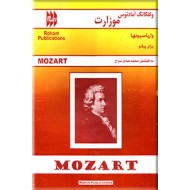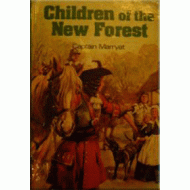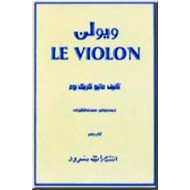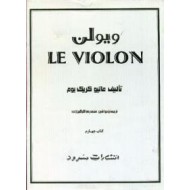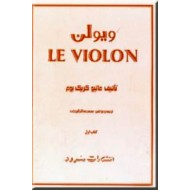
- موجودی: موجود
- مدل: 194991 - 50/1
- وزن: 0.50kg
Mendelssohn and Schumann
نویسنده: Jon W. Finson , R. Larry Todd
ناشر: Duke University
زبان کتاب: انگلیسی
تعداد صفحه: 189
اندازه کتاب: وزیری گالینگور روکشدار - سال انتشار: 1984 - دوره چاپ: 1
مروری بر کتاب
Essays on Their Music and Its Content
ONE of the most fortunate personalities among modern composers was Felix Mendelssohn Bartholdy (1809 - 1847), who was born in Berlin, the grandson of Moses Mendelssohn, the famous Jewish philosopher. The father of Felix was a banker, and his mother a woman of a very sweet and amiable disposition.
The children of Abraham Mendelssohn were baptized in the Christian faith in order to escape in some degree the prejudice against the Jewish race. Felix, having a strong inclination to music, at an early age made great progress in it. His first concert appearance was made at the age of ten, in which he played the piano part in a trio by Woelfl, and was very much applauded. As early as his twelfth year he began systematically to compose, and being naturally of methodical habits, which were still further encouraged by his father and mother, he kept an accurate record of his works, which at the last filled forty-four folio volumes, the most of the pieces being dated, and the place given where they were written.
In the year 182o he composed between fifty and sixty movements, of almost every sort, songs, part songs, pieces for organ, piano, strings and orchestra, as well as a cantata, and a little comedy for voices and a piano. In the summer of 1820, the whole family made a tour of Switzerland, and a very large number of pieces were composed at this time. In this same year he made a more important concert appearance with Aloys Schmitt, in which he played with Schmitt a duet for two pianos. This continued exercise in composition was not entirely of an abstract nature, for the Mendelssohn family were accustomed to have reunions on Sunday evenings, when these pieces were played. For occasions like this he wrote several small operas, and his talent was encouraged in every way by his parents, and by his very judicious teacher, the celebrated Zelter.
When he was scarcely more than twelve years old, Zelter had him play before Goethe, and a trio of the boy’s was also played, after which he was sent to play in the garden while his seniors discussed his prospects. Thus the boy grew up under the most favorable circumstances possible, his father being a wise and careful man, who, although not a musician, thoroughly sympathized with the artistic aims of his son; and his mother also encouraged him to more serious efforts. Even at this early age he was a prolific composer of orchestral music, the year 1824 being that of the composition of the symphony in C minor, now known as No. 1, but in Mendelssohn’s catalogue marked the thirteenth of his compositions. In this year Moscheles passed through Berlin on his way to London, and made the acquaintance of Mendelssohn. At the Sunday morning music in the Mendelssohn house, Moscheles recalls the performance of Felix’s C minor quartette, D major symphony, a concerto by Bach, played by Fanny, and a duet for two pianos.
In the same year Spohr came to Berlin, and a little later Hiller, both of whom speak of Mendelssohn’s playing as something very remarkable. His celebrated octette for strings, Opus 20, was composed in 1825. This was the first of his works which has retained its popularity. The year following he composed the overture to ” The Midsummer Night’s Dream,” one of the most remarkable pieces of the early romantic school. In this the fairy-like music of Titania and her elves is charmingly contrasted with the folk songs and the absurb bray of the transformed Bottom. He had already written an opera “Camacho,” which had been submitted to Spontini, the musical director of Berlin, but it was never performed.
He entered at the University and attended the lectures of Hegel and Carl Ritter, the geographer, but for mathematics he had no talent. Two folio volumes of notes of the lectures of Hegel and Ritter are preserved from the years 1827 and 1828. His overture to “The Calm Sea and Prosperous Voyage” was written in 1828. In the year following he started on a long journey of three years, carefully planned by his father, in which all the countries of Europe were to have been visited successively, and observations made on civilization and society. His first appearance before an English audience was at a Philharmonic concert, May 25, 1828, when he conducted his symphony in C minor and improvised on the piano. He was received with the utmost applause. Five days later he played the Con-certstück of Von Weber, and, which was a great innovation at that time, with no music before him. His letters from London are very charming indeed. At a concert later, his overture to ” The Midsummer Night’s Dream” was performed with great success; this was the beginning of his English popularity, lasting all the rest of his life.






